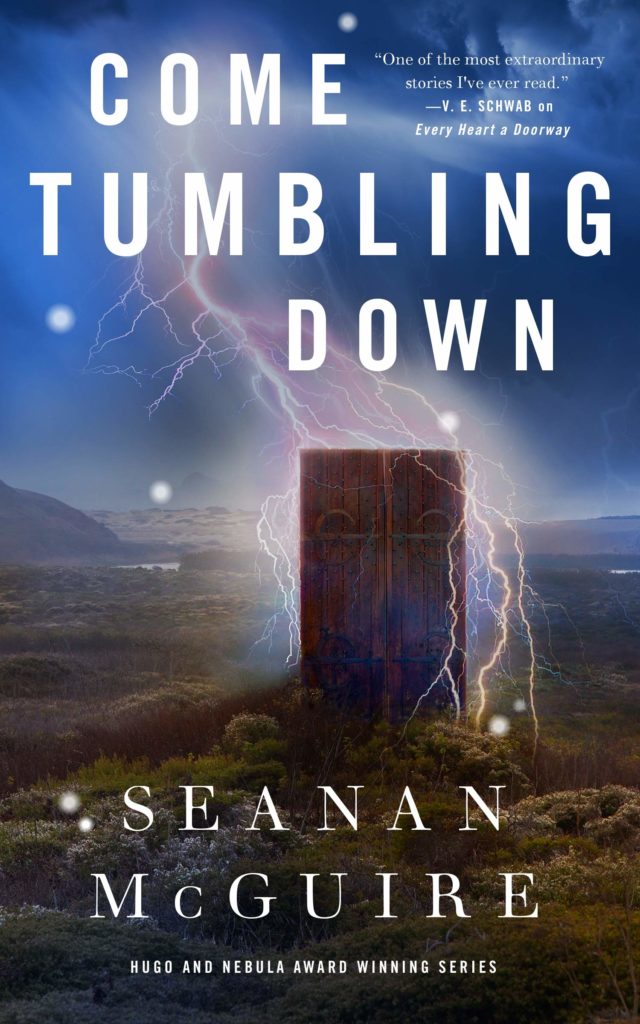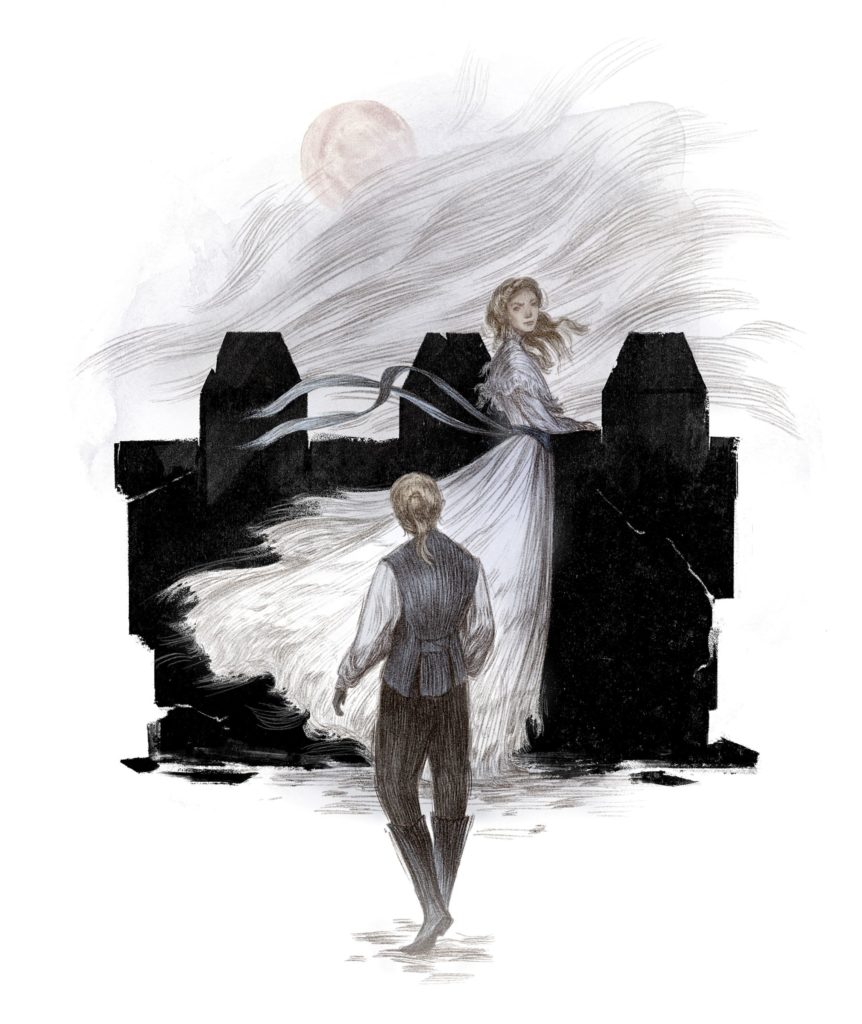
At C2E2, I decided to look smart at one of the “Writers Talking About Writering” panels, and once the floor was open for questions, asked mine: “If you struggle with obsessive-compulsive tendencies, how do you avoid solving problems too neatly for your characters?” (Let’s pretend I phrased it this way, rather than a mumbling shortness-of-breath situation.) Sam Sykes was one of the people who answered, and his answer, which I am paraphrasing here, was on the lines of “I think of everything that could go wrong in any given moment, and then explore where that takes the character.”
And OH BOY does he! Seven Blades in Black (first in the The Grave of Empires series) is a masterclass in Things Going Wrong, and I loved every. Single. Second. Of it.
Sal the Cacophony has an axe to grind. She was once a mage of the Imperium, whose power was stolen during a conspiracy to dethrone an Emperor. She has a list of the people responsible, and she is going through it. With a demon-possessed hand canon that shoots magical explosions.

The book takes place in a no-man’s-but-kinda-every-man’s-land called the Scar. Once a new frontier for the magicratic Imperium from across the sea, it has been ravaged by a generation-long war between Imperial forces and their former slaves, who have wrested freedom through mystical relics and a gun-powering substance found in the new land, and formed the no less bloodthirsty Revolution. Nobody cares about the little people, huddled in their freeholds and townships. Including Sal, who also doesn’t care about either side in the war.
Seven Blades in Black is an anti-heroic fantasy. Sal is a broken, broken woman, and the worst of the scar tissue isn’t even on the surface. She is cynical to a fault, a painful knot of dry wit and nihilism, placing little to no value on her own well-being, so long as she can kill everyone on her list. And when your enemies are some of the most powerful mages of your generation, things tend to get.. damaging. Sam Sykes somehow manages to throw every available kitchen sink at his protagonist, and yet the book never falls into gloom-and-doom territory. While the world and story are certainly grimdark, the narrative is so action-packed that at no point does it even consider dragging.

Another thing Sykes said in answer to my question at C2E2, was that characters who feel very strongly about something will always clash against the rest of the world. This is what drives much of Seven Blades in Black. Where Sal has a monomaniacal drive to kill those who wronged her once upon a time, the people around her do not. The few side characters of the book clash with Sal on a deeply intimate level, and for how action-driven the story is, I found myself genuinely entangled in the borderline toxic relationships she has with others nearly as much as I was with her quest.
So, if you have ever wondered what would happen if you mixed a techno-magical Final Fantasy style world with a classic revenge samurai story, added some serious emotional trauma and made your character somehow still read as the absolute coolest, then Seven Blades in Black is your book, as it was most certainly mine. And I am definitely vibrating on high frequency, waiting for the sequel in August!





